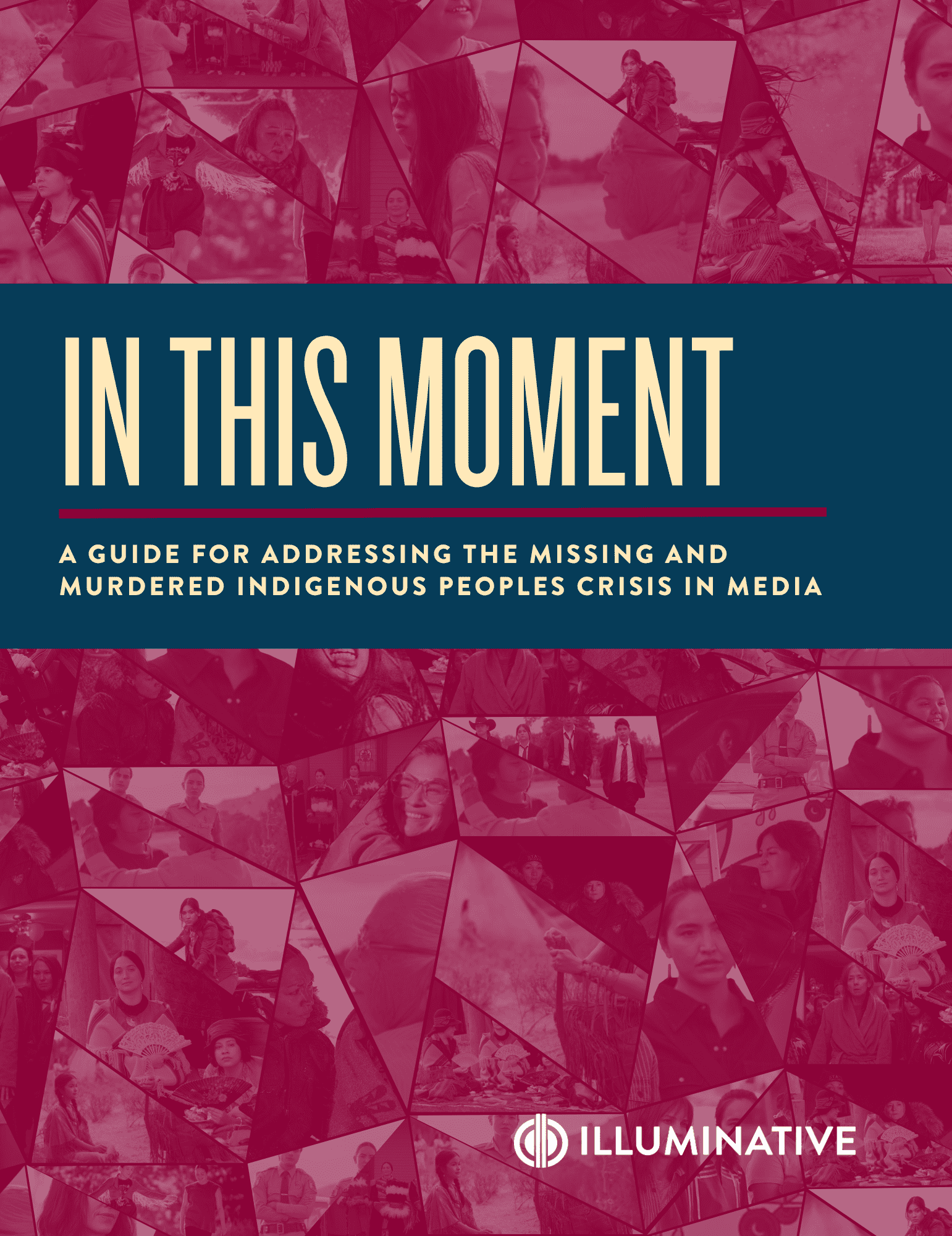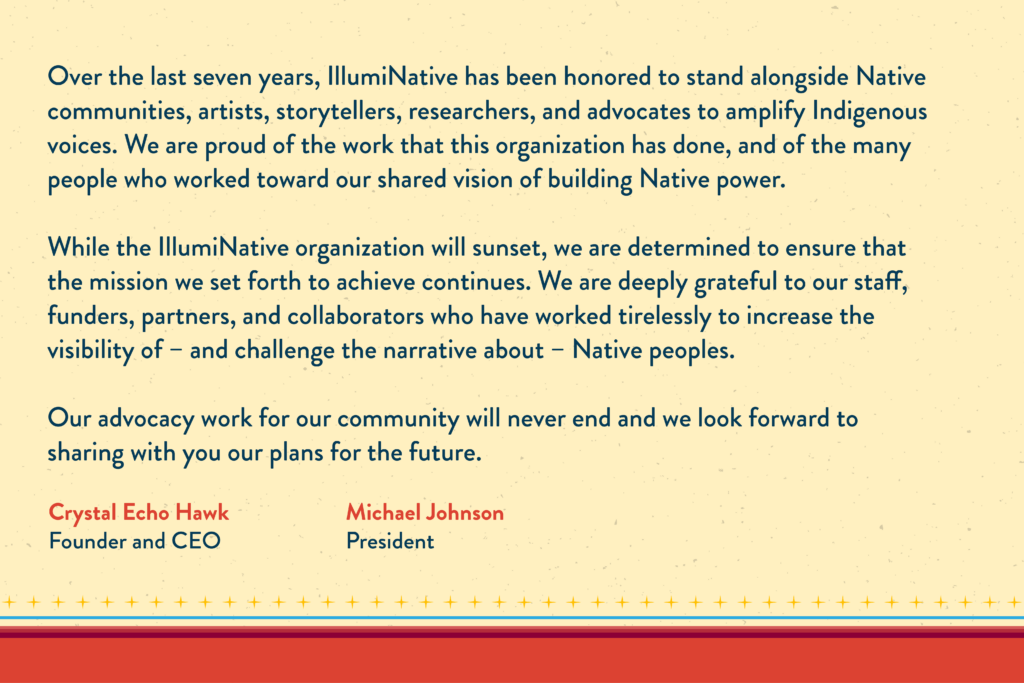NEW RESOURCE
A GUIDE ADDRESSING THE MISSING & MURDERED INDIGENOUS PEOPLES CRISIS IN MEDIA
The success of shows like True Detective: Night Country (HBO), Dark Winds (AMC), and ECHO (Hulu/Disney+), and films like Killers of the Flower Moon and Fancy Dance (Apple TV+), have ushered in a new era of Native storytelling in entertainment and demonstrates that Native centered stories and characters resonate with audiences. While there are reasons to celebrate Native stories being told on major platforms, there remains a great need for the entertainment industry to take the necessary steps to avoid perpetuating harm, particularly when it comes to telling stories that involve Native trauma, such as the Missing and Murdered Indigenous Peoples (MMIP) crisis.
Filmmakers, creatives, artists, and other industry professionals have an opportunity to create a stronger community rooted in authenticity and care. The MMIP guide comes from countless reviews of MMIP content and includes guidance from leading Native creatives and subject matter experts on best practices for MMIP storytelling. Our hope in creating this guide is that we honor our relatives by educating a larger audience about the MMIP crisis and offering guidance on how to address the topic in entertainment and media.
The best practices noted in this guide cannot comprehensively address every situation that may arise in a production, but should instead be seen as guideposts that, when continually activated, can become industry standard. These practices include, always obtaining permission and consent, prioritizing telling true stories, and hiring Natives.
This is our moment to come together to create a culture of reciprocity for Native creatives and communities, and champion authentic storytelling in Hollywood and beyond.
Thank you to the Native creatives and experts who contributed their time, stories and insights that helped inform this guide
MMIWG25 Alaska
Alaska Native Justice Center, Alaska Native Heritage Center, Alaska Native Women’s Resource Center, Data for Indigenous Justice, Native Movement.
Charlene Aqpik Apok (Iñupiaq, she/they)
Apok, who holds a PhD and MA, and serves as the Executive Director, Data for Indigenous Justice and the Gender Justice & Healing Director of Native Movement. She is also the Co-Creator of the Alaska Native Birthworkers Community.
Princess Daazhraii Johnson (Neet’saii Gwich’in)
Johnson is a writer/director/producer/actor and is committed to building more narrative sovereignty for other Alaska Native filmmakers through such programs as Native Movement’s Alaska Native Filmmakers Intensive.
Mary Kathryn Nagle (Cherokee)
Nagle is an attorney whose work focuses on the restoration of Tribal sovereignty and the inherent right of Native nations to protect their women and children from domestic violence and sexual assault. Nagle is also an accomplished playwright and works in film and television.



